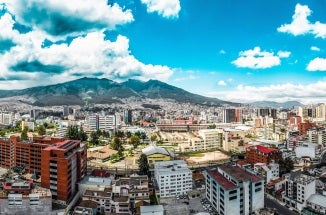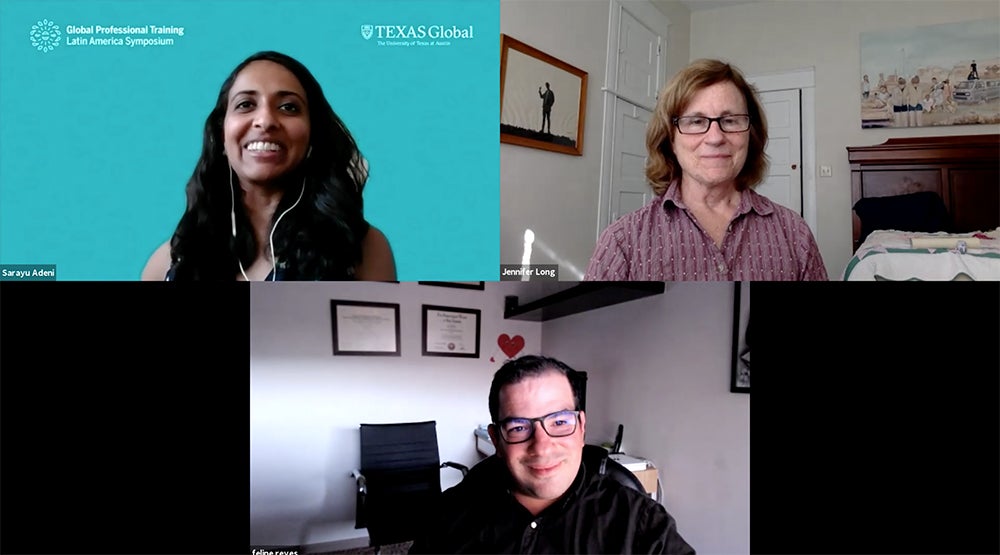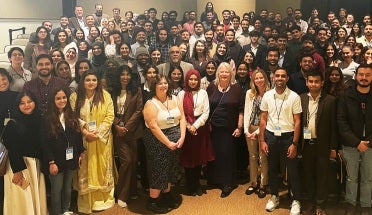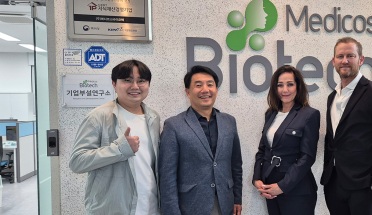
Global Professional Training Symposium Highlights STEM Opportunities in Latin America
- Jun 15, 2021
- Global Alumni Relations
- by Suvi Bhalgat
Students, faculty and alumni from around the world convened virtually for the Global Professional Training Latin America Symposium, exchanging experiences, sharing career opportunities and participating in in-depth discussions on living and working in the region.
Originally established at UT Austin in 2010, the Global Professional Training (GPT) program has been held virtually for the past year, allowing additional opportunities for students to have international education experiences during the pandemic.
The Spring 2021 GPT Latin America spanned from March 11 to April 10 and featured a series of engaging career panels on a variety of fields. Rescheduled from Feb. 27 due to Winter Storm Uri, the event culminated in a full-day seminar, beginning with a keynote conversation between Sonia Feigenbaum, senior vice provost for global engagement and chief international officer, and Dr. Ricardo Ainslie, director of the LLILAS Benson Mexico Center and director of education and research for AMPATH Mexico.
Teri Albrecht, assistant vice provost for operations at Texas Global, welcomed students to the final day of the symposium with words of wisdom and encouraged participants to take full advantage of the program.
“The goals of the GPT program are for you to have a stronger cultural and historical knowledge of the region and current affairs, to understand the skills that are needed to succeed in new cultural settings, to network with peers, professionals and academics with interest and experiences in the region and to provide you with the opportunity to explore professional research and volunteer opportunities in the region,” Albrecht said.
UT Austin has several strong partnerships in Latin America, sending about 1,000 students annually to the region and hosting another 1,500 international students and scholars. On campus, there are multiple centers and faculty members dedicated to the study of Latin America, such as the LLILAS Benson Mexico Center as well as programs at spaces like the Blanton Museum of Art and the Harry Ransom Center.
This semester’s symposium placed a greater focus on the public health sector, with sessions such as a career panel on public health, medicine and social work as well as discussions on various topics such as leveraging implementation science to address global health disparities. Presenters included prominent figures in the region, UT alumni currently working in Latin America and UT graduate students who shared their cultural insights and experiences.

GPT participants and speakers represented 18 colleges and schools, and came from all over Texas and the world, including Brazil, Colombia, Ecuador, Mexico, Netherlands and Panama. The symposium featured presenters from a range of international organizations and globally-focused units at UT Austin, including the U.S. Department of State and renowned universities in the region.
The event also attracted students from a variety of majors, representing 14 different colleges and schools at UT. Almost half of the attendees were from STEM and interdisciplinary backgrounds, a significant increase in students from outside the College of Liberal Arts compared to previous years.
Anthony Doe (B.S. '21) attended the event this past spring and says the symposium benefitted STEM students like himself because of its emphasis on examining the humanitarian sides of technical problems, such as exploring the ethical complications of satellite imagery in indigenous communities as mentioned by STEM career panelist Carolina Rosero Cordero (B.S. ’05), director of Amazon Program at Conservation International in Ecuador.
“GPT was great at reinforcing my belief that when developing new technologies, the people that they're supposed to serve need to be kept at the center of design,” Doe said. “Rather than taking technologies that have been designed for the West and dropping them these regions, they need to be rethought with significant input from local populations. GPT encouraged my desire to engage with technology experts in Latin America and to one day live and work there. I think participating in GPT Latin America makes better all-around engineers.”
As a Panamanian American, Doe says that this diversity is one of the reasons he attended the symposium for the second time this year.
“Since I'm interested in working in Latin America, I wanted to hear the perspective and lived experiences of people who work or have worked in the region,” Doe said.
Erica Vasquez, a human development and family science sophomore from Houston, Texas, found the interactive format of the sessions rewarding.
“It was great to hear the personal accounts of the panelists; their passion in their work was inspiring,” Vasquez said. “I was grateful for the chance to ask questions and listen to the advice the panelists shared. It was a great opportunity that I would have otherwise not been able to have. I took to heart Dr. Felipe Reyes' sentiment that the people in Latin America are eager to do their part in learning and sharing knowledge to improve the wellbeing of their communities.”
As a child of Salvadoran immigrants, Vasquez hopes to use her future career in pediatric medicine to serve Latin American communities. She wants to address social inequalities and health disparities as well as work with nonprofit organizations related to improving communities and children's wellbeing.
Vasquez says her GPT experience made that goal seem much more attainable.
“The biggest takeaway from GPT Latin America was the newfound sense of achievability I see in pursuing a career in relation to Latin America,” she said. “Prior to this experience, the idea of one day engaging with Latin America was like a far-fetched idea in the back of my head, something that wasn't very realistic or attainable. After the sessions and symposium, however, I can see that this is not something out of my league and that there are a vast number of opportunities, starting at UT.”
Recent Cockrell School graduate Doe says he wants to use his degree to work in entrepreneurship in Latin America, the Caribbean and West Africa. The symposium has helped shape his path and learn how to navigate the space.
“My biggest takeaway from GPT Latin America is to listen and live,” he said. “There are many opportunities to become involved in the region, so rather than me trying to find something that I think is perfect for me, it may be worthwhile to pick something I'm interested in and just dive in. But when I dive in, I need to go with an open mind and listen to the people that live there, ‘listen’ to the food, listen to the sounds and listen to everything that makes up Latin America. In doing that, I'll learn more about myself and the ways I can engage with the region.”



